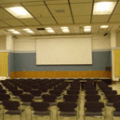Dr. E.O. Wilson Public Forum
Pioneering minds from the fields of technology and biodiversity will be honored on Oct. 2 by the American Computer & Robotics Museum and Montana State University for their groundbreaking work.
The George R. Stibitz Computer and Communications Award will go to David Ferrucci, a computer scientist who will forever be associated with the IBM Watson computer project that beat the best human contestants on the television quiz show Jeopardy!; and Robert Gunderson, a space flight engineer who helped develop the manual guidance and control system for the National Aeronautics and Space Administration’s Apollo missions and the Saturn V rocket system.
An Edward O. Wilson Biodiversity Technology Pioneer Award will go to Janine Benyus for her work in the field of biomimicry; Kjetil Våge, an oceanographer who has extensively studied ocean currents and global climate; and Laurie Marker, a wildlife biologist who has focused on studying and conserving the cheetah.
The recipients of this year’s awards will be honored at a private dinner, but following the dinner, the awardees will be part of a free public forum where artificial intelligence and the future of humanity and biodiversity will be discussed by Dr. Edward O. Wilson and the Honorees. The forum, titled “Planet in Peril: The Future of Humanity” is set for 6:30 p.m. Friday, Oct. 2, in the Strand Union Building ballrooms on the MSU campus and will be moderated by Robert Rydell from the MSU Department of History, Philosophy and Religious Studies.
Both awards were established by George Keremedjiev, founder and director of the American Computer and Robotics Museum in Bozeman and a 2009 recipient of an honorary doctorate at MSU. For the past 18 years, the museum has been presenting the Stibitz awards, named in honor of the man who helped develop the first modern digital computer. Prominent biologist E.O. Wilson – who received a Stibitz award in 2006 for pioneering the Electronic Encyclopedia of Life – presented the first Wilson awards in 2009.
“Since our first awards ceremony in 1997, we have felt that it is paramount, in this era of social networking, personal digital appliances and challenging biodiversity preservation issues, to honor those who have made significant contributions to the evolution of modern electronics, biological technologies and the preservation of life’s biodiversity here on Earth,” Keremedjiev said.
More information about this year’s awardees:
Ferrucci is a computer scientist and was a principal investigator for the IBM Watson computer project. The Watson computer earned international headlines by beating some of the best human contestants on the television quiz show Jeopardy! in 2011. After that success, Ferrucci and the Watson computer moved on to a research project at the Cleveland Clinic that aimed to help doctors make more accurate diagnoses. Ferrucci has since left IBM and works for the hedge fund Bridgewater Associates.
Gunderson was an author on some seminal papers on pilot control and guidance for the vehicles central to some of NASA’s most celebrated missions, including the Apollo program that landed Apollo 11 astronauts Neil Armstrong and Buzz Aldrin on the surface of the moon.
Benyus is a natural science writer, innovation consultant and author of six books, including “Biomimicry: Innovation Inspired by Nature.” She co-founded the Biomimicry Guild and Innovation Consultancy, which help innovators learn from and emulate natural models for the design of sustainable products and processes and public policies. Benyus lives in Missoula, where she founded the Biomimicry Institute, a nonprofit that aims to raise awareness and use of biomimicry. She is also a lecturer at the University of Montana.
Våge is an oceanographer and researcher with the Geophysical Institute at the University of Bergen and the Bjerknes Centre for Climate Research. He was recently awarded one of the most prestigious scholarships in the Fulbright program, the Fulbright Arctic Chair award, which earned Våge a four-month stay at Woods Hole Oceanographic Institution in Massachusetts. Våge’s research focuses on ocean currents and climate change, with recently published research on the complex system of ocean currents driven by freshwater draining Greenland’s ice sheets.
Marker is the founder and director of the Cheetah Conservation Fund. She has been travelling to Africa for cheetah conservation for decades. In 1977, during her first trip to Namibia, she arrived with a captive-born cheetah and proceeded to do groundbreaking research on the process of reintroducing captive-born cheetahs to the wild. She helped develop international captive breeding programs, establishing the most successful captive cheetah-breeding program in North America during her 16 years (1974-1988) at Oregon’s Wildlife Safari in the USA.
Cost: Free
Time(s)
This event is over.
Fri. Oct. 2, 2015 6:30pm
More Events Like This
| Tweet |
